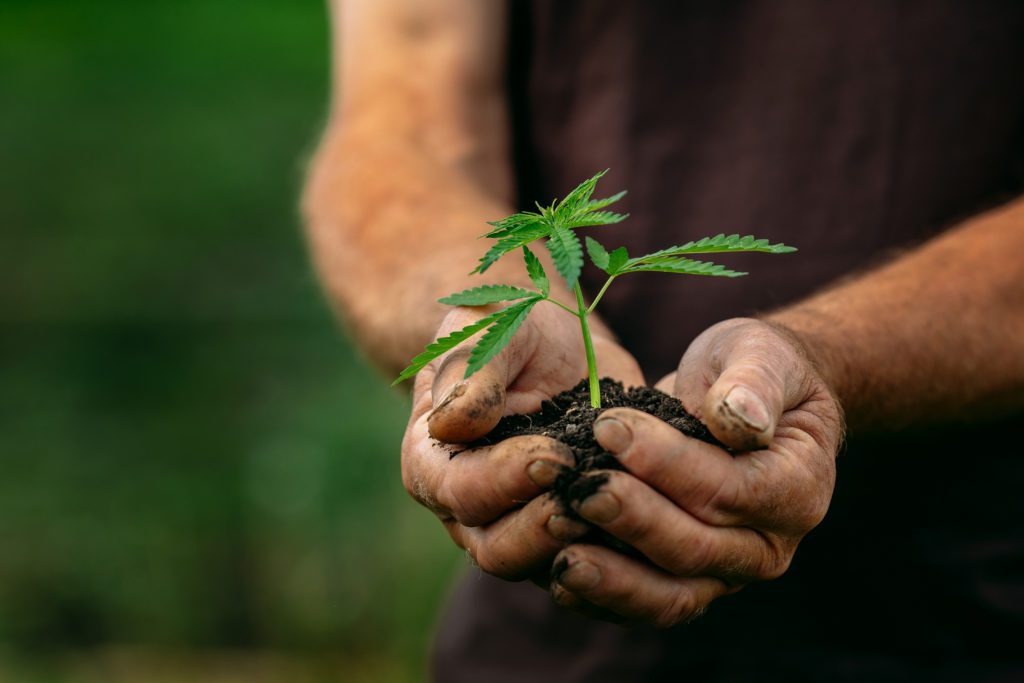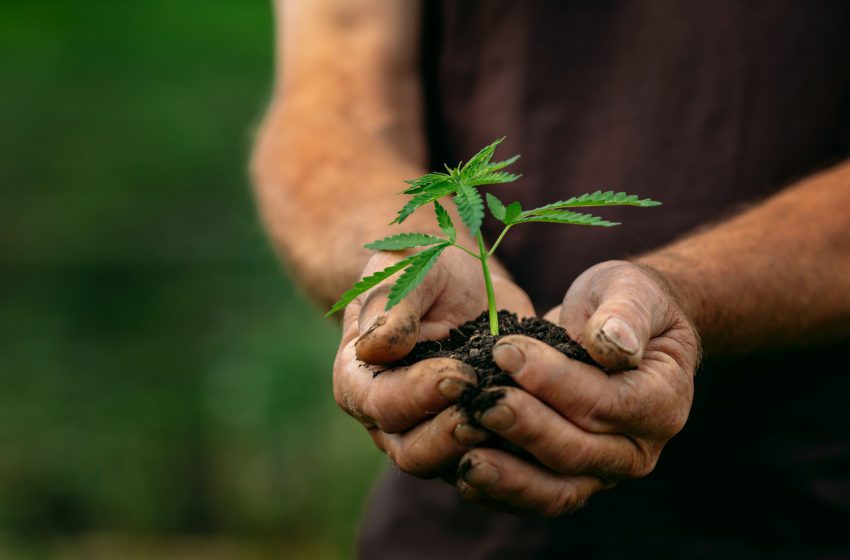
While there are three bills in Congress competing to legalize marijuana, there are also many obstacles.
By Timothy S. Donahue
For the second time, the U.S. House of Representatives passed the Marijuana Opportunity Reinvestment and Expungement (MORE) Act (HR 3617), a bill that would end the federal prohibition on cannabis by removing it from the list of banned controlled substances. The MORE bill that passed the House with 220 “yea” votes to 204 “nay” votes would end the federal ban but leave legalization up to the states. The last time the House passed the MORE Act, the Senate did not take it up for a vote.
The current MORE bill is also expected to face strong headwinds in the Senate. This is partly because there are currently three bills floating through Congress competing to legalize marijuana on the federal level. The second bill, the States Reform Act (SRA), was introduced last year by Representative Nancy Mace. The SRA is the first comprehensive Republican version of legislation to end cannabis prohibition. It’s expected to have its own hearing in April (but had not at press time). Mace voted no on the MORE Act.
Mace’s legalization bill is primarily aimed at having the federal government treat marijuana in a similar manner to alcohol, and cannabis would be removed from the Controlled Substances Act, with retroactive effects for people previously punished. Prior federal cannabis convictions would need to be expunged within one year.
The third marijuana legalization bill is out of the Senate. Senate Majority Leader Chuck Schumer, Senate Finance Committee Chairman Ron Wyden and Senator Cory Booker introduced the Cannabis Administration and Opportunity Act in 2019. It was read twice and has been in committee ever since. The main features of the legislation largely align with what advocates and stakeholders expected. The bill (S. 1552) would federally deschedule cannabis, expunge prior convictions, allow people to petition for resentencing and maintain the authority of states to set their own marijuana policies.
While all the action marijuana legalization bills are receiving lately is exciting, it doesn’t mean that the U.S. is close to decriminalizing delta-9 THC. Rod Kight, founder and principal of Kight Law Office and a prominent global expert in marijuana law and legislation, said that he doesn’t expect any of the legalization bills to pass this year. Currently, cannabis is legal for adult use in 19 states and for medical use in 36 states. The legal marijuana industry generated $25 billion in sales last year, a 43 percent increase over 2020, and is expected to hit $65 billion in 2030, according to Forbes.
In an interview with Vapor Voice, Kight shared his insights into the various bills.
Vapor Voice: Do you think the MORE Act has a chance to get passed in the Senate?

Kight: I think it has almost no chance whatsoever in the Senate for a couple of reasons. One is that there are competing bills. I think we may have some political showmanship as to which bill can get passed. Additionally, the Senate doesn’t get a whole lot done to begin with. It’s become an “obstructionist” legislative body, but that’s a topic for another day. So, with respect to the MORE Act, I would call this a symbolic vote by the House that, disappointingly, is almost certainly not going to pass in the Senate or even come close.
If you thought one bill had a best chance to pass, which one would you choose?
If a decent bill came from the Senate to the House, then it may have a good chance. In that scenario there, a bill is much more likely to pass than one coming from the House to the Senate. I think the hurdles the Schumer/Booker bill are going to face are that it’s competing with a Republican bill in [the] House. Additionally, it’s also just still competing with old-school prohibitionists. This is important since it will need 60 votes. I’m not sure that Schumer even has the full Democratic caucus, much less Republicans, who would either presumably say no and vote against it to continue prohibitionist policies or to vote for the Republican bill sponsored by Mace.
We talked about two of the bills; what is your opinion of Mace’s legislation?
She says she has bipartisan support. This would again have to come out of the House, though, and go into the Senate. As I said earlier, that’s a more difficult route given the way our legislative system works. That being said, it’s really hard to predict how the Mace bill will do because on the one hand, a lot of Democrats want to pass cannabis reform at almost any cost, including by voting for a Republican-sponsored bill. And so, here’s a bill sponsored by Republicans that may actually be able to get through because of presumptive Republican support and some Democratic members of Congress who will vote for it in order to legalize marijuana. All of this is to say that the Mace bill could have some traction simply because it’s sponsored by a Republican.
On the other hand, it’s not as comprehensive or thorough of a bill and doesn’t address a lot of issues that Democrats want. And then also, it’s sort of … a pride issue … for the Republicans to sponsor and pass a cannabis bill, which forever has always been a Democratic issue. I think that would be a pretty hard pill for the Democrats to swallow.
If we really look at the Mace and the Schumer/Booker Senate bills, the more that the MORE Act seems DOA [dead on arrival]. The Schumer/Booker bill is probably unlikely to pass as it stands as well. It will probably get blocked by Senate Republicans.
If you were writing the legislation, what would Rod Kight’s bill look like?

The most straightforward thing to do would be to just, literally, have a very, very short bill that simply removed all forms of cannabis from the Controlled Substances Act altogether. Done deal, and then it’s up to the states to regulate it, which is de facto happening now anyway. Under that scenario, it would be regulated in a similar manner to other products, such as alcohol, tobacco, kratom, etc., that are typically regulated by the states. And then the FDA [U.S. Food and Drug Administration] and other federal agencies would regulate to the extent that the various products that flow from cannabis fall within their respective jurisdictions.
That being said, and as simple as that may sound, it’s unlikely to happen. “Cannabis” comes loaded with meaning these days, from financial gain to personal liberty to health to tax benefits to social and racial equity, etc. So any cannabis law will ultimately incorporate some, and perhaps all, of these cannabis-related issues and more. So there is ultimately an opportunity for each of the different parties and many interest groups to get something that they want. Democrats want social equity, they want racial equity, they want expungement, all of which are really important and speak to a bigger set of values related to cannabis so that when it is finally legalized, we’re not just allowing big corporate interest to come in and scoop this whole thing up after prosecuting people for almost 100 years, primarily people of color. This is a major concern in a controversial medical marijuana bill in my home state of North Carolina.
On the other hand, the Republicans tend to focus more on making this thing really work for business.
For my part, and given both the history and the current state of affairs with cannabis, I favor a bill that fully removes it from the Controlled Substances Act and also addresses social and racial equity while creating a place for small businesses to thrive.
If you had a crystal ball, will a federal legalization bill pass this year? Next year?
I don’t see any advancement this year. I think the best we can hope for is some banking and potentially some tax reform as those things relate to marijuana. I don’t see any kind of legalization at the federal level. As far as when we can expect to see it, I think, at the very best, it would be next year. However, I’m starting to kind of get my head around the fact that the best opportunity is probably in a post-Biden administration setting. Biden is simply not a supporter. I think without strong support and even leadership from the executive side, [it’s] ultimately difficult to get anything through of this magnitude.
What kind of social and economic benefits would legalization bring, such as taxes, fewer people in prison, etc.? Could more money go to treating the addiction of harder drugs?
I don’t have any specific numbers, but I will say that this reform is not only good for the physical and mental health of American citizens but also for the fiscal health of the country. Taxing the products and using those taxes to fund socially beneficial programs, including expungement of marijuana convictions, while also lowering the prison population will be huge. Of course, adding an entire new industry to the market will have a huge financial impact. Finally, liberating cannabis for use by people instead of medicating with pharmaceuticals will also help. With respect to addiction and mental health opportunities, I think cannabis can play an enormous role. I think that it could help reestablish the U.S. as a leader in the world economy as well. We’re seeing Latin America beginning to legalize; we’re seeing Germany and Spain making moves to legalize. And so, if the United States gets out ahead of that slightly, then I think the U.S. retains control of what promises to be a huge sector of the economy, whereas if we allow Europe to take the lead on this, then it will be impossible for the U.S. to recover. I don’t think the U.S. could ever really gain it back.
What about on a state level—is legalization becoming more active?

As it stands, the states continue to be the place where all the action is happening. It’s really fundamentally important to pay attention to all the various bills regarding cannabis across the board. You know, recreational marijuana, medical marijuana, hemp, hemp derivatives, all those types of things. Watch what’s happening at the state level. I think that’s really where we’re seeing some essential changes.
Will we eventually see all 50 states with legal marijuana?
I think it is unlikely but possible that we could have some form of legal marijuana in all 50 states while it is still illegal at the federal level. This would be unprecedented. In fact, it’s probably unprecedented where we are at right now. What other issue in the history of the U.S. has been like this, where you have more than a majority, maybe even a supermajority of states that have legalized something that the feds deem to be illegal or vice versa?
Just to take things to another perspective, consider that now with respect to hemp derivatives—you have THC that’s being lawfully marketed throughout the country, and in most states, it’s legal. At what point do we even really—from a policy level, not necessarily a statutory definitional level—just consider that cannabis is, in fact, lawful throughout most of the U.S. in the sense that there are all of the active compounds in marijuana, including THC, being marketed throughout the country legally through hemp. At what point do we just say cannabis is legal in this country, either de facto or otherwise?
Times are changing. You had marijuana, which was considered the “THC world.” And then you had hemp, which was considered to be the “CBD world.” Those worlds have blended. You have interesting things that the states are doing. Ultimately, what’s happening is [that] the overall tide of cannabis legalization is continuing to move forward. We may see a situation where almost every state has legalization of marijuana. Yet, marijuana is still, quote, unquote, illegal at the federal level. That’ll be a very strange state of events, but that’s how it could play out.
Last question: Is there unity between the hemp and marijuana producers? Unlike other industries, are the segments banding together to fight potential regulations?
No, I think there’s unfortunately a lot of dissension. I think there’s dissension between the marijuana industry and the hemp industry and within each of those sectors of the industry. Then I think at the level of the farmers, the farmers are the front lines, and they’re the ones that really are often not heard. They’re the ones that struggle with massive price fluctuations and the bottom dropping out and then the mass demands. Then they ramp up for demand, and then it goes away. The farmers may be the most important factor in this equation.


